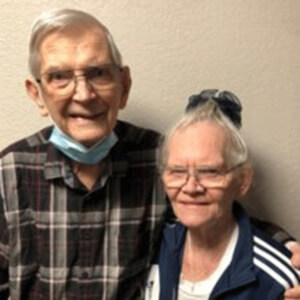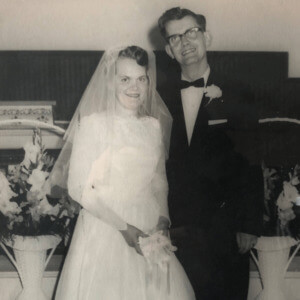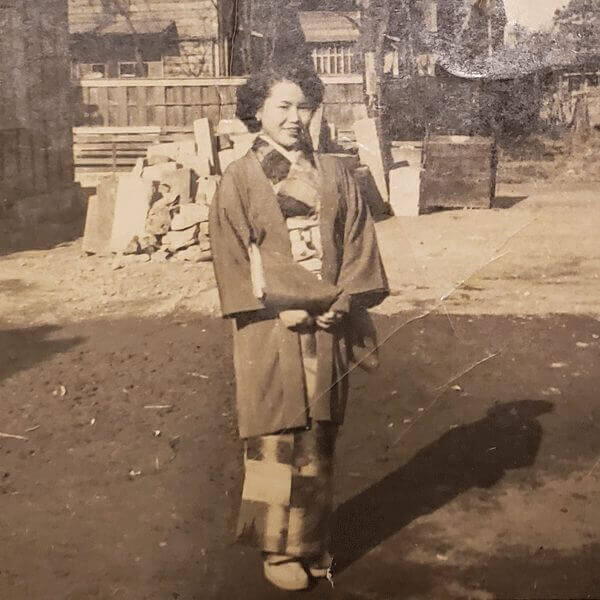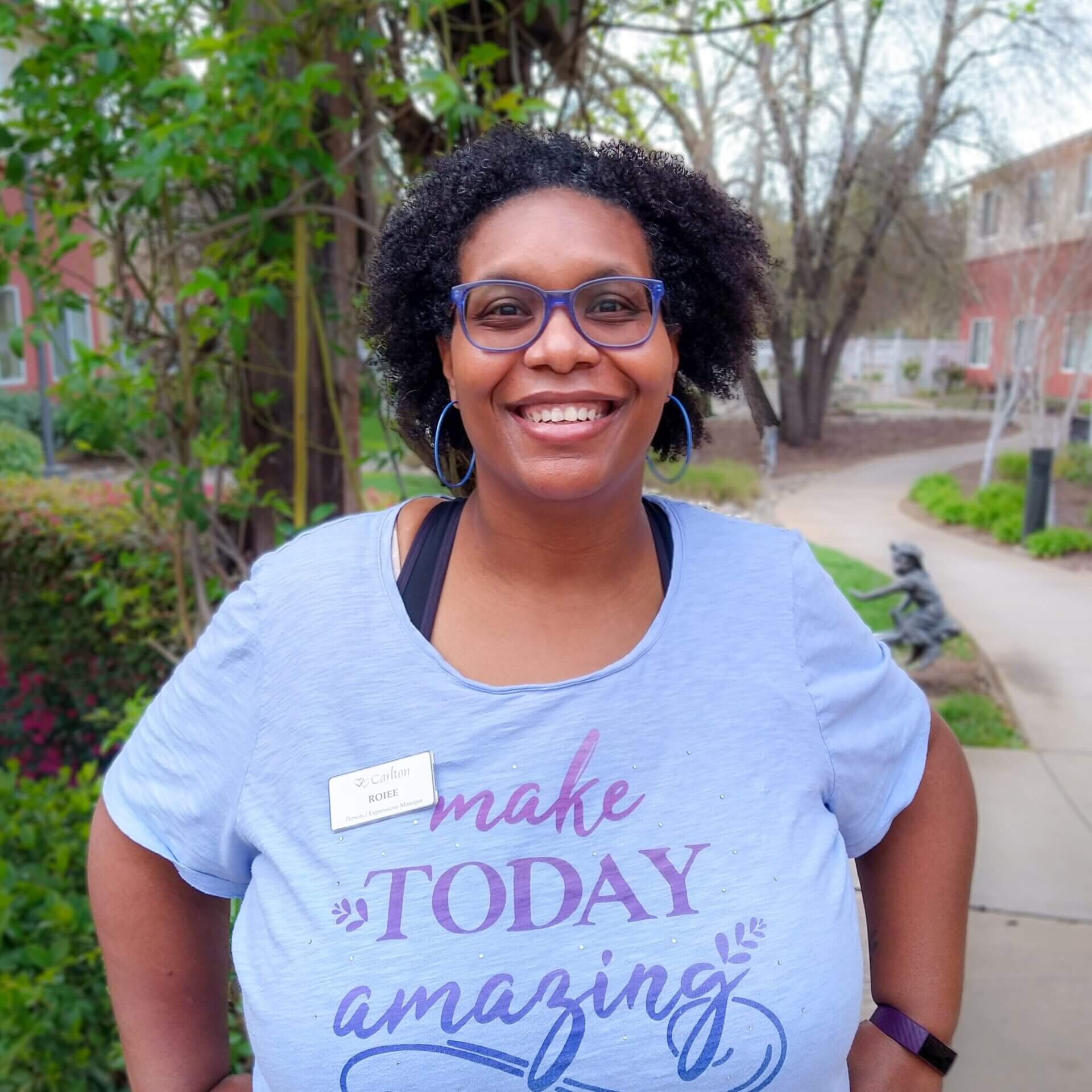Celebrating 60 Years Together: Ivan and Iris Share Their Story
Ivan and Iris Seppala celebrated their 59th anniversary in May of 2021. The same month they moved from their Clayton home of 47 years to Carlton Senior Living Pleasant Hill – Martinez. The couple had met in the early 1950s at the Apostolic Lutheran Church in Rosburg, Washington. Ivan admits he wasn’t too impressed at the time with the slight Canadian girl. But two years later, when she came to a church gathering in Seattle, he saw Iris much differently. “She asked how us folks were doing,” he recalls. “Seriously, she cared about people,” Iris replied with the practicality her upbringing had instilled in her. “I was in nursing school. I wasn’t looking for a man.” However, eyes were opened and the courtship flourished resulting in their marriage on May 12, 1962. This year, the Seppalas celebrated 60 years together.
Written by Harriett Burt, Carlton Senior Living Pleasant Hill-Martinez Resident
IVAN’S STORY
Before moving on to the more significant parts of their life together, this inquiring reporter had to ask if Ivan ever forgot Valentine’s Day or Iris’ birthday. “Never,” they both agree. Iris said there was one time that was missed when he was seriously ill in the hospital, but Ivan reminded her that he wrote “I love you” on a small piece of paper and gave it to her.
Ivan’s father immigrated from Finland in 1911 ending up in Washington State. His mother’s father also immigrated from Finland, ending up in Kent, Washington. Their only child, Ivan, was born in Seattle in 1933 during the worst part of the Great Depression. Mr. Seppala was both farmer and a minister. He even was a logger at one point and was almost killed by a falling tree. After that, he had a variety of jobs including co-owning and managing a feed store in the middle of the Depression. During the worst of it, he sometimes had to take money out of the cash register to buy food for his family. The business survived and when Ivan’s father retired, he bought a small working farm because, as a business owner, he wasn’t eligible for Social Security.
Ivan graduated from high school in 1951. He enrolled at Pacific Lutheran College, (now University) in Parkland, Washington where he graduated in 1955 with a degree in accounting. The next year he was drafted into the Army. Ivan graduated first in his administrative class at Fort Ord and worked as a clerk there until the end of his service in 1958. That September, he was hired as a temporary clerk which became a 28-year career beginning in the Seattle accounting department of Chevron (then still known as Standard Oil of California).
Like other Carlton residents, Ivan belongs to the group of pioneer computer employees many companies formed in the 1960s. His Chevron bosses encouraged him to learn computer programming because he was more interested in computers than in straight accounting. In the 1960s, IBM was the main source of computer knowledge and free computer education opportunities for businesses. For about three months, Ivan took IBM’s free one-morning-a-week classes and would spend afternoons and evenings proceeding each class doing his eight hours a day of work.
As a result, he soon became a computer operator, moving up the ladder until he became Supervisor of Computer Operations in the accounting division of the company’s large Concord office complex. Ivan’s favorite part of the job was moving around the office giving operators tips and helping to solve problems. He and Iris along with their four children were transferred to the San Francisco Bay Area in November 1968. In 1986, Ivan became part of a mass voluntary retirement when the company that had been so supportive of employees changed its pro-employee policies (in part as a result of its purchase of Gulf Oil company) in order to provide jobs for at least some of Gulf’s employees. But the general atmosphere between Chevron management and the working employees changed but not for the better after the merger, Ivan notes.
Always active in his church, Ivan was ordained in the Berkeley church in 1975 and was active in the ministry until about 2019 when his health declined. During his early retirement years, Ivan also found other interesting jobs and projects to work on besides dealing with some health issues. The Seppala’s lived in Clayton for 47 years prior to moving to a senior living facility in Ripon, California for two years and then relocating to Carlton in May 2021 to be closer to their four children.
IRIS’S STORY
What was it like to grow up within an hour and a half’s drive to the Canadian Rockies and Banff and Lake Louise? In our interview, Iris emphasized the fact that she probably didn’t get much of a chance to look at those mountains close up. Born in 1939, Iris was the third of 13 children. The family lived on a wheat and rye farm on the prairie in Alberta, Canada to parents who had each been raised with 12 other siblings. Iris agrees that her family situation meant she had a lot of responsibility to help around the house and the farm.
Iris recalls helping to make bread, “we used an old wood-fired cookstove.” The dough was prepared in the washtub they used to take their bath in on Saturday night. Since the house had an indoor toilet but not a bathtub, their mother, who Iris describes as passionate about cleanliness, filled a water container attached to the side of the stove to heat the water for the baths. She scrubbed the tub thoroughly with bleach as soon as the bread was in the oven and soon after the last bath.
In Iris’s childhood and youth, bad weather or disease among the chickens caused the farm to fail on two occasions. Each time, in 1948 and in 1954, the family moved to a 10-acre farm in southern Washington across the Columbia River from Portland, owned by her mother’s brother. “The house had electric lights, water, and equipment galore,” she says.
The first time they moved there, Iris was nine. Strawberries and chickens were raised on the farm. A rare disease attacked the chickens with some pecking the backside of other chickens thus spreading not only the rare disease humans were not susceptible to but also the normal good and bad bacteria that could affect humans that the flock always carried.
Iris suddenly became seriously ill with one of the worst of those bacterial diseases, tetanus, for which there is still no cure except to wait for the toxin in the human body to wear itself out. By the 1940s, that process could be speeded up some by massive doses of penicillin and sulfa drugs and the number of cases was reduced by vaccines.
Families in the community stepped up to pray for her. She was moved to the home of a nearby aunt who was a nurse and also had a quieter home. A major symptom is a stiffened body and Iris was ordered to remain in bed in complete quiet with a shield over her eyes. Her diet of jello, broth, and tea was changed to custard, milk, and cream when her mouth became raw since she was taking so much medication. In two months, the symptoms were completely gone but Iris was very thin. She remembers that there was a girl on the school bus who had heard about her illness and saved a seat for her every day.
The name Iris Hilman could still be in Washington’s Clark County records as the first human to survive tetanus there. When asked to describe her feelings during this frightening period, she replied quietly, “I just talked to God. I believe in God.”
She also kept a vow “to pay back all that has been done for me.” They moved back to her uncle’s farm in 1954 because of terrible storms that destroyed the crops. Since she needed to help with the family, she did her schoolwork at home and graduated in 1957. Iris immediately enrolled at Vancouver Community College to train to become a Licensed Vocational Nurse (LVN) to fulfill her vow of nine years before.
“I enjoyed my job as an LVN. I worked in Pediatrics and Obstetrics,” Iris recalls. After their children were grown, she worked as a school nurse in the Mt. Diablo District and as a charge nurse at two convalescence hospitals in Concord. She also became an American citizen along the way. Iris Hilman Seppala has indeed paid back what she felt she owed for her recovery all those years ago.
Love and Life After Retirement
Iris also loved the five years after retirement when she worked at a flower shop. Taking orders and fulfilling them “really wasn’t work,” she says, that is until computers took over. “I was never trained to type,” she says, so she regretfully retired again.
Looking back on his work life, Ivan observes that he didn’t like speaking to large groups as much as he liked moving around the room answering students’ questions, or giving a tip about designing code and other supportive actions. During retirement, he also enjoyed working as California Secretary (leader) of the Central Board of the Apostolic Lutheran Church.
This is an American marriage and family story. Now it too is part of Carlton’s history.
Browse Carlton’s full collection of STORIES OF THE HEART.







